'88 Days of Hell': The True Story of the Atlanta Olympic Bombing and the Wrongfully Suspected Hero at the Center
The bomb that blew a hole in Richard Jewell’s life — the bomb that killed two people and injured 111 others in Atlanta’s Centennial Olympic Park in 1996 — was small enough to fit into a large green backpack. But it was dense and deadly with metal piping and nails.
And somewhere inside, its clock was counting down.
From afar, the bomb could escape notice. Close up, though, and the threat was terrifying: Federal officials called it the largest such explosive device they had ever seen, weighing at least 40 lbs., wired to an alarm clock, with a steel plate positioned to direct the blast into the surrounding crowd of thousands.
Jewell, then a 33-year-old security guard at the 1996 Summer Olympics, was stationed at the light-and-sound tower for a concert stage in Centennial Park. He may not have been the first person to spot the bomb shortly after midnight on July 27, 1996. But he was the first person to do anything about it.
What happened next has been recounted over and over again — changing, sometimes dramatically, in the re-telling.
Jewell started out as a hero, a savior of untold lives because he saw the bomb early and alerted police then helped push the crowd back from the blast radius. Within days, however, he became a suspect in the investigation. At times he was literally pursued by the FBI, with the media swarming his every move.
RELATED: A Real-Life Hero Is Turned Into a Suspect in Trailer for 1996 Atlanta Bombing Movie Richard Jewell

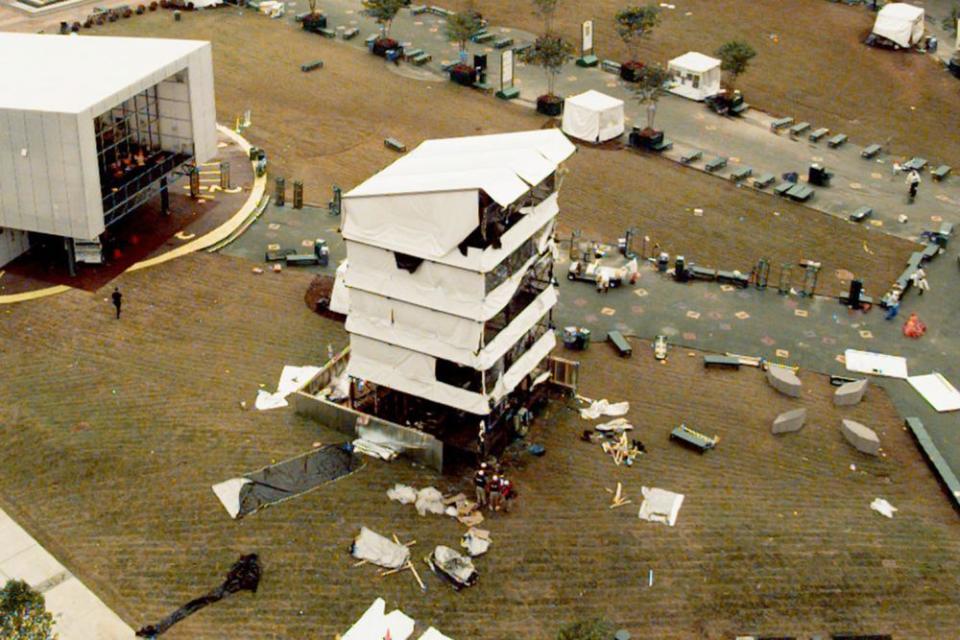
“The fact that Richard Jewell was identified was great for the Olympics because everyone felt safe. Little did they know they shouldn’t have. The media got its story. … Law enforcement got their named suspect,” says Kent Alexander, then the U.S. attorney for the Northern District of Georgia and a leading prosecutor on the case.
“It was good for a lot of people,” Alexander says, “but horrible for Richard Jewell.”
At last, some three months later, the government announced he was not their bomber, as he’d insisted all along.
Jewell called the months in between “88 days of hell.”
The saga, already the subject of countless headlines, was dramatized in Clint Eastwood‘s Richard Jewell, starring Kathy Bates, Jon Hamm, Sam Rockwell and Olivia Wilde. The film, released in December, has drawn muted crowds so far but remains in the awards conversation, particularly for Paul Walter Hauser’s performance as Jewell and Bates’ as his mother.
Eastwood has described his movie as a kind of big-screen correction
“It’s always tragic when people run off with half information and don’t really have the truth set up in front of them,” he recently told the Associated Press.
Almost immediately after the 1996 Olympic bombing, Jewell’s story became as much about what people — the police, the media, the public — were getting wrong as what they were getting right.
No, Jewell was not the bomber. No, he was not an accomplice. No, he was never arrested, charged or convicted. No, no, no.
Eastwood’s movie arrives after all these years. “The world will know his name and the truth,” goes the tagline. But, in what one real-life player called a “tremendous irony,” Richard Jewell has been similarly criticized for distorting facts about the Jewell case, specifically journalists’ role.
Here — according to new interviews with those involved as well as archival materials and The Suspect, an exhaustively reported book about the bombing by Alexander and Kevin Salwen that was used in research for the movie — is what happened 23 years ago.
As PEOPLE declared in December 1996, in its list of the year’s most notable figures: “Richard Jewell always wanted to be recognized. To his lasting regret, he got his wish.”
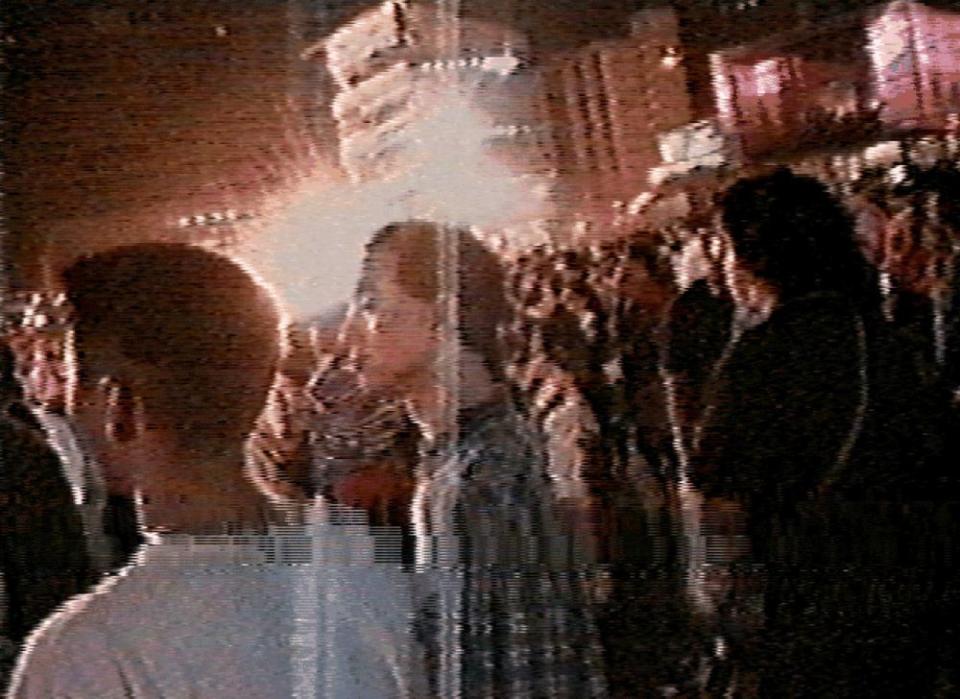
‘All Hell Broke Loose’
The thing everyone agrees on about Richard Jewell is that he ardently, even desperately, wanted to work in law enforcement. But he arrived to the Summer Games in ’96 as a security guard after the inglorious end to two previous stints in police work: the first and longest with the Habersham County sheriff in Northern Georgia, where he’d worked his way up from jailer to deputy; the second, much shorter job was with Piedmont College.
Some found him dedicated. Some said overzealous and occasionally insubordinate — insistent on his vision of correct police work. He had a lead foot and a terrible driving record, even when behind the wheel of his cruiser. Friends spoke of his loyalty, others of his condescension.
“His heart seemed to be in the right place, but it was the way he went about things,” one officer in a department neighboring Piedmont later told The New York Times. “He alienated people in the way he went about things. You’ve heard of a wannabe? Well, that was Richard, more or less.”
RELATED: Richard Jewell Star Jon Hamm Defends Controversial Portrayal of Female Journalist in Film
Jewell returned home from Habersham County and moved in with his mother, Bobi, in her apartment in Atlanta. That July night in ’96, he was working the 12-hour graveyard shift with the Olympic security company, watchful as ever of his post in the park in the heart of downtown.
At 12:30 a.m. he noticed the “Speedo boys,” seven guys at nearby benches who’d made their way from the Speedo tent. Their rowdiness drew his eye — and his ire. He saw them take beers from a green pack with them. Another green pack lay under a bench by them, but none of the boys touched it.
About 12:50 a.m., the group was still causing a ruckus and Jewell was ready to say something. But then, when the Speedo boys began to drift away, Jewell realized they’d left that green pack under the bench. He and a Georgia Bureau of Investigation agent tried to locate the owner. Some of the Speedo boys said it wasn’t theirs. No one came forward, which meant protocol kicked in: At 12:57 a.m., the GBI agent reported the suspicious package. Officials on the scene worked to establish a safety perimeter. Two bomb techs inspected the pack. One of them unzipped it to look inside — and recoiled at what he saw.
One minute after the pack was first called in by the GBI agent, at a bank of pay phones by a hotel outside the park, a man dialed 911. He had an urgent message:
“There is a bomb in Centennial Park. You have 30 minutes.”
Actually, the caller had mistimed his own homemade explosion (in part because the first time he called 911, he tried to launch into a screed and the dispatcher, perhaps unknowingly, hung up on him).
At 1:20 a.m., the IED in the military-grade green backpack in the middle of Centennial Park detonated.
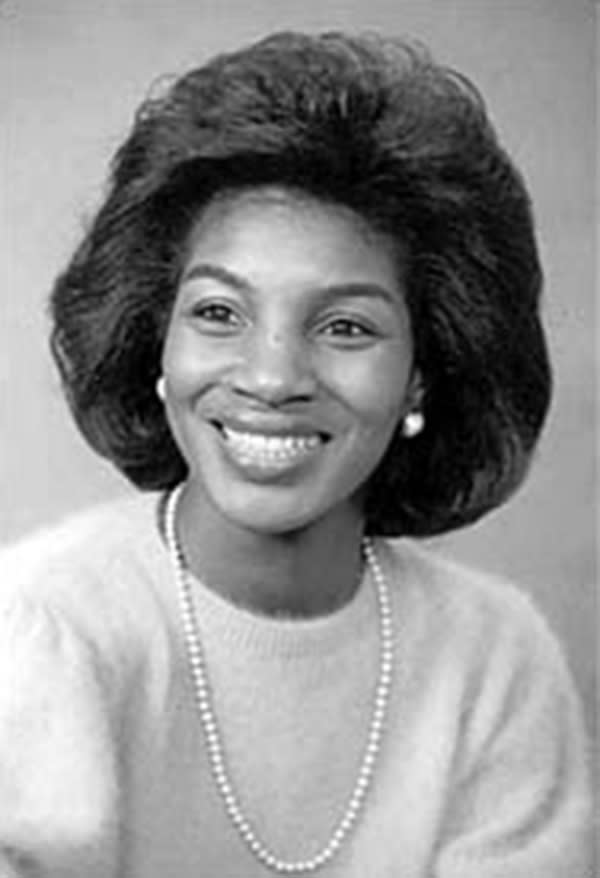

Alice Hawthorne, who had brought her 14-year-old to the park as a birthday present, was killed by slicing shrapnel, wounds carved across her body.
Melih Uzunyol, a Turkish cameraman, died soon after while rushing toward the scene: His coronary was “precipitated” by the bombing.
Hawthorne’s teenage daughter, Fallon, survived. Uzunyol, on assignment far from home, left behind two children.
Among the 100-plus others injured were those with chest and head injuries and one officer whose hand had a hole blasted through it.
Jewell was knocked down in the explosion but not significantly hurt. Very soon, it seemed that he had played a key role in preventing more carnage.
Kent Alexander, the former federal prosecutor, remembers meeting Jewell later that morning.
“I shook his hand to thank him. He was wearing his fanny pack, his security shirt on, the whole bit,” Alexander tells PEOPLE, “and I just wanted to say ‘thank you’ because I had heard he’s the one who discovered the pack and saved a lot of lives.”
News outlets heard about Jewell soon as well. Before long, he was on CNN and on Today, talking with Katie Couric. The security company he worked for arranged interviews with multiple reporters. He cooperated with investigators, too, methodically detailing what he could about what he’d seen in the hours surrounding the explosion.
“I feel like I am a person that did the job that I was supposed to do,” he told Couric early on July 30, 1996. “I was in the right place at the right time and used my training in the way I was taught.”

Jewell did not know it then, but the government already had its doubts about his heroics. The night before, in fact, they’d wired up a law enforcement friend to secretly record a dinner conversation with Jewell.
As he left his Today interview on July 30, the FBI trailed behind, unnoticed.
This is what had changed: On the night of July 27, not quite 24 hours after the bombing, the police chief at Piedmont College, Jewell’s former employer, phoned in a lead about him — that he had owned books on making bombs. Piedmont College’s president called the FBI the next morning to underline their concerns about Jewell’s state of mind. This circumstantial evidence mounted quickly. Too many people, it seemed, had troubling things to say about Jewell.
Law enforcement had other things on their mind, too. Domestic terrorists — homegrown radicals, often lone white men such as Timothy McVeigh, who’d bombed a federal building in Oklahoma City the year before — had emerged as a national threat. In investigating this Olympic bombing, some turned back to the 1984 Games, when a police officer had fabricated a bombing in order to be hailed a hero.
“On day nine of the Olympics, in a game that was lasting 17 days, there was a bomber on the loose. Two million people were in town,” says Alexander, then a U.S. attorney. “The night of the bombing, there were 50,000 people in the park. There was huge pressure not from anyone above but just from law enforcement ethos and commitment to find the bomber.”
While the FBI, which was leading the investigation, had looked at other possible suspects before Jewell, he was their focus by July 30.
“There was a little bit of tunnel vision because everything did seem to align,” Alexander says.
RELATED: Clint Eastwood’s Richard Jewell Bombs After Backlash — Marks His Worst Opening in 40 Years
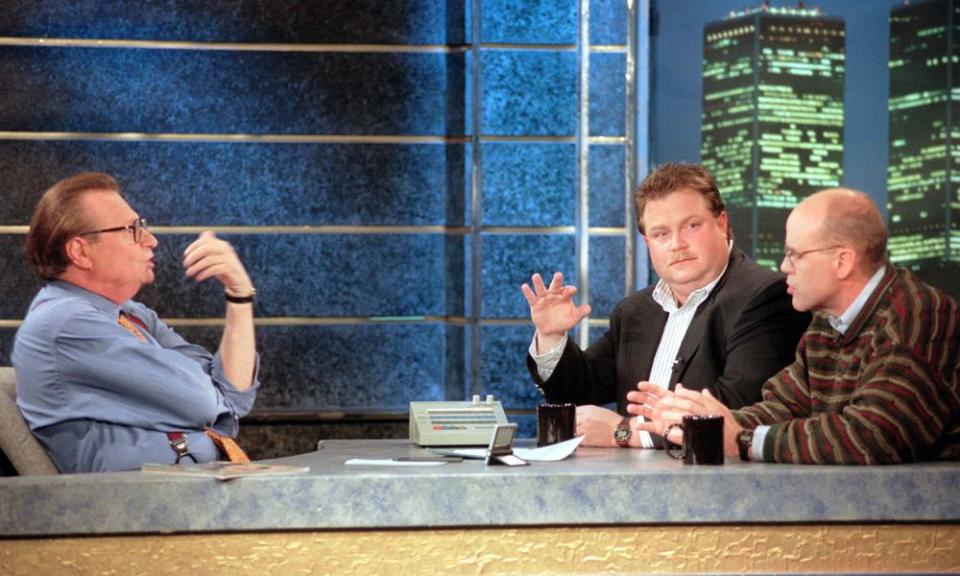
An FBI agent named Don Johnson had gone up to Habersham on July 29 to interview those who knew Jewell, where he heard similar concerns about Jewell’s comportment and past problems.
At the same time, FBI profilers, drawing on the quasi-psychological work of behavioral science, evaluated Jewell and found he fit their idea of a probable bomber: “He … requires the trappings of a law enforcement officer,” the profile stated, according to The Suspect. It continued: “Now he must come up with a way to parlay this into a ‘real’ law enforcement position. He is only one among thousands so he must stand out as someone worthy of notice.”
From there the FBI planned to interview Jewell twice more, to see if he cracked. That never happened.
Instead, his name leaked to The Atlanta Journal-Constitution and everything that was wrong with the case only got worse.
Among the numerous media outlets already in the city for the Games, Jewell’s name had begun to circulate from various sources on the investigation. But the AJC was the first to corroborate and publish it, after giving an FBI spokesman advance notice as a courtesy and receiving no major pushback on the scoop.
The afternoon of July 30, hours after Katie Couric praised Jewell on Today, an extra edition of the paper announced the FBI actually thought he was a suspect and that he fit their bomber’s profile.
Back at his apartment, in the nascent internet age, Jewell was none the wiser, not at first. The FBI, off-kilter because of the leak, scrambled its plans on interviewing Jewell in two phases. Instead they would just bring him in and go from there. The gathering reporters at Jewell’s apartment peppered him with questions as he left with the agents. Did he know he was a suspect? Was he to blame?
Watching him among the crowd of press was AJC reporter Kathy Scruggs, who had co-written the story revealing Jewell was under investigation. Escorting Jewell to the FBI’s offices that afternoon was agent Don Johnson.
According to The Suspect, Johnson was Scruggs’ original source.
Later that day and miles away, an old attorney co-worker of Jewell’s named Watson Bryant spotted a copy of the paper. According to The Suspect, he responded, “What the hell?”
By then, Jewell was similarly disturbed, having realized during FBI questioning that they were not his friends and he was not their useful witness. He asked to call an attorney, but Bryant didn’t answer. So Jewell called around.
“I didn’t hear from him for a couple years, then all the sudden the bomb goes off and he’s on TV,” Bryant’s brother Bruce tells PEOPLE. “The day that the Atlanta Journal came out with their news report, that special edition that says he’s the No. 1 suspect, Richard called me because he couldn’t find my brother who was down in Olympic Park. He called me, he called my dad. He called everybody, saying, ‘Where’s Watson? Where’s Watson?’ He didn’t tell me, but he was calling from the FBI.”
That same afternoon, Bruce says that with the AJC‘s scoop coming off the printers (and soon being broadcast, verbatim, on CNN), “All hell broke loose.”
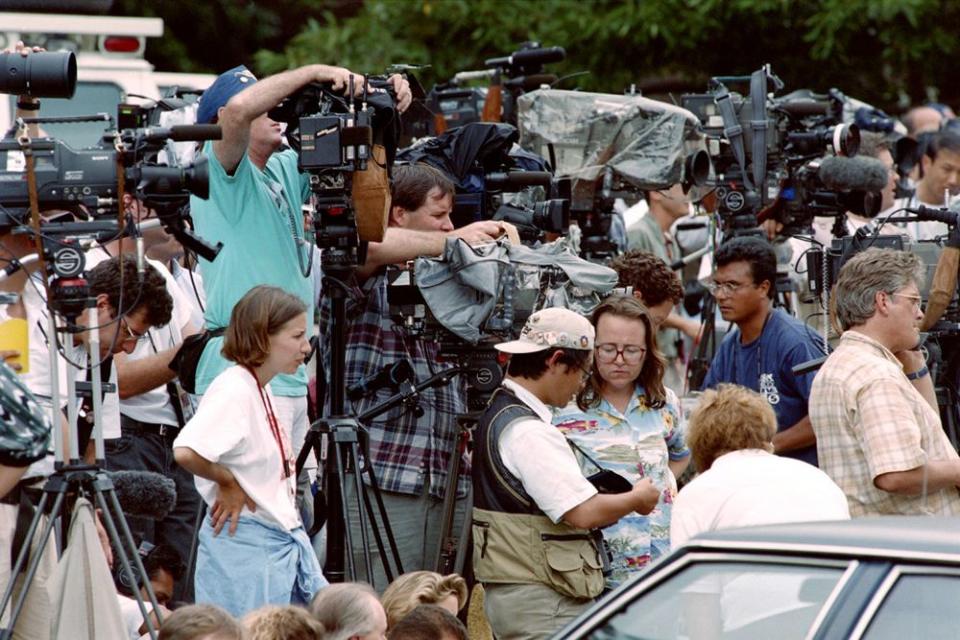
‘Waiting to Be Killed’
Decades later, it can seem as though Jewell’s time in the cross-hairs of law enforcement was mercifully short. “He might, in fact, be considered one of the lucky ones, in the sense that his ordeal lasted weeks rather than years,” PEOPLE wrote that December.
But the three months Jewell spent officially under suspicion felt like anything but brief.
“As the days passed, I kept waiting for the FBI to uncover the evidence that would point them in the right direction,” he later said. “It did not happen because they were looking in the wrong direction. They were still looking at me.”
Jewell said he “felt like a hunted animal, followed constantly, waiting to be killed.”
His defense attorney Jack Martin, who became one of Jewell’s key lawyers, tells PEOPLE Jewell was “throughout the whole process mystified” that he was actually under suspicion.
“He believed justice would be found and there was no way they could convict or even prosecute an innocent person like him. It just wouldn’t happen,” Martin says. “Maybe he was a little naive in that regard.”
After interviewing Jewell on that July 30, the FBI searched the apartment he shared with his mother and pored over their gathered materials — from Jewell, from the scene — to see if there was a physical link to bolster the circumstantial case against him. They already knew that the timing between the bomb being spotted and the 911 call outside the park was too tight, but at the same time Jewell seemed too tempting a suspect.
“I think there’s a legitimate criticism that law enforcement focused too long on Richard Jewell, but it’s very hard in this circumstance to discount somebody when you have hundreds and hundreds of leads coming in,” Alexander says.
RELATED: Olivia Wilde Shares ‘Her Personal Take’ on Whether Her Richard Jewell Character Traded Sex for Tips
It sometimes looked like every odd thing anyone had ever seen Jewell do or say had come back to haunt him. Heavy-set and single, in his 30s, with a Southern drawl, Jewell was a law enforcement enthusiast who owned many guns. He could appear, to different people, as a rube or a menace — someone ham-fisted enough to try to make himself a hero with a bomb scare or someone dangerous enough to plot one out and try to cover it up.
“There are biases that are implicit in our societies that are very unfortunate,” Alexander says. “And, in this case, those biases came into play in a big way.”
“Richard was a very proud person and rightfully so. Eccentric in ways, but really proud,” Martin says, adding, “It really hurt him that he was being accused of something like this.”
The New York Post described Jewell as a “Village Rambo” and a “fat, failed former sheriff’s deputy.” According to The Suspect, some media organizations pooled their resources to rent an apartment near Jewell’s, for ease of coverage. Numerous reporters watched him from outside his building, waiting.
“It was nerve-racking. It was a high-anxiety time to go to his house,” remembers Bruce Bryant, the brother of one of Jewell’s attorneys. “I could just feel my stomach go right up in my throat. … I felt like a rat trapped in a box or something. You’re in the apartment with Richard and his mom and you know there are hundreds of people outside staring at you. All you had to do was flip the blinds and a hundred cameras went off.”
For a time, Jewell helped Bruce with youth football coaching (over some parents’ objections), but other outings were more difficult: He was closely monitored — and shunned. Once invited to a baseball game, he arrived to find the ticket had been rescinded because of the optics.
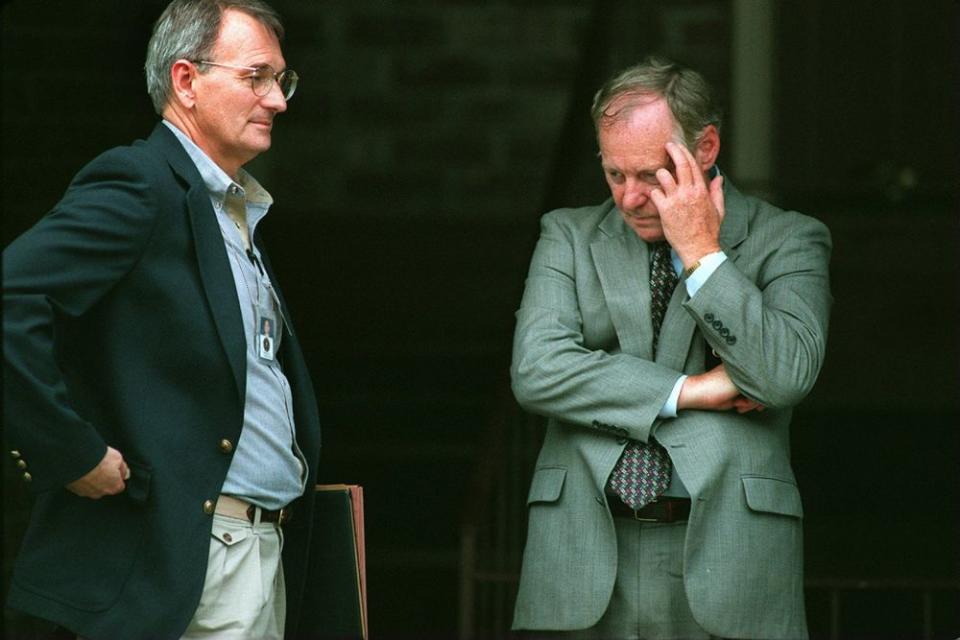
Following the leak, the FBI went silent on its work even as more and more investigators turned their focus from Jewell with the weeks rolling on.
Not Don Johnson, the agent who’d first been sent to interview Jewell’s acquaintances in North Georgia. He had “a hunch that turned into a belief about Richard Jewell that turned into certainty,” Alexander says. Johnson “was an agent who just trusted his gut, and if in his gut he thought someone was guilty, they were guilty.”
In Johnson’s mind, Alexander says, “Richard Jewell was absolutely involved with this bombing, and he thought that until the day he died.”
Even as the weaknesses in the Jewell case became more apparent to some officials, the FBI could not turn up other suspects.
In fact, it would take them years to find the right person. In the zoomed-in focus of those early days spent looking at Jewell, there was comparatively no talk about the man with a goatee who had been seen sitting on a green bench over the bomb, near the Speedo boys whom Jewell later saw.
Meanwhile the AJC, which had first reported Jewell’s name, continued to follow the case — and the cracks forming within it. The paper’s Bill Rankin was the first to publicly report Jewell could not have made the 911 call about the bomb. Rankin had done the walk himself, from the pay phones to the blast site. It took much longer than one minute. Rankin soon broke the news to Martin, one of Jewell’s attorneys.
“[My editor and I] just decided we would do everything we could to find out whether he did it or not,” Rankin says now. “And if he didn’t, who?”
Over time, public opinion also turned as Jewell’s team slashed back at investigators, often in colorful language. They trumpeted a lie-detector test Jewell had passed.
In August, weeping, his mother publicly pleaded with President Bill Clinton to intervene. “He has a moral duty to the citizens of this country,” she said. “If the FBI does not intend to charge my son, please tell us. Please tell the world.”
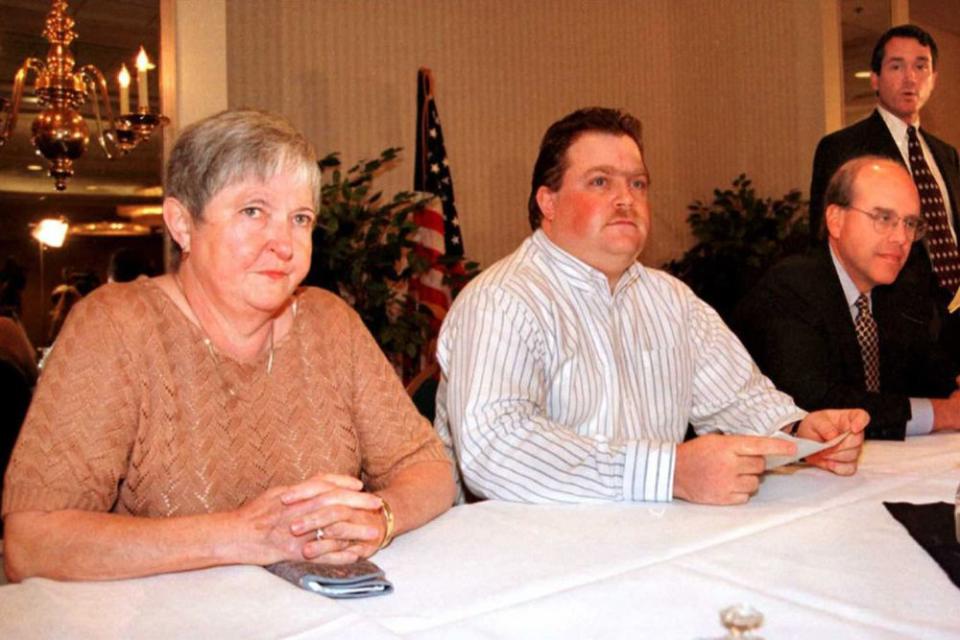
But federal authorities would not clear Jewell without a final interview. Jewell agreed to one in early October. Three weeks later, Alexander himself delivered a letter to Martin on behalf of the government, stating Jewell was no longer a target in the case.
“He and his mom had endured so much. It just seemed like the right thing to do,” Alexander says.
He and Martin “both agreed that it would be played as if Richard was completely cleared, which I felt he was.”
The real bomber’s name was Eric Rudolph, a racist, anti-government radical. Centennial Park was the first of four of his targets between 1996 and 1998 — in total he killed three people — and he remained a fugitive until 2003, when a night-shift police officer spotted him dumpster diving in North Carolina.
“After he was exonerated, [Jewell] did everything he could to help the prosecution solve the case,” Martin says.
Still, “I don’t think he was ever able to totally block out the blemish of that accusation or get over it,” Martin says. “Even though he was just the opposite: He was a person who saved lives that night, not put anyone in peril. That must’ve been hard for him. He did the right thing and it just kind of boomeranged on him.”
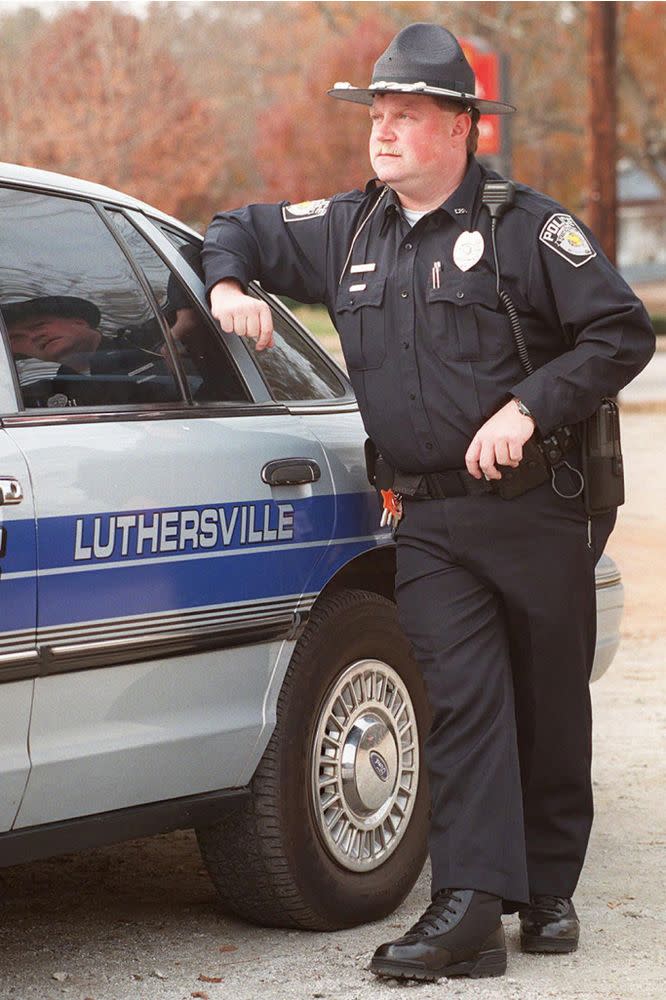
What Became of Richard Jewell
Jewell lived another decade: He found work again in law enforcement — even once helping a choking infant — and wed Dana Story in 2001.
Speaking with Fox News in December, Dana said he was left “scarred” and “paranoid” by the ’96 investigation: “He would have nightmares, wake up in cold sweats. Until he died, he still had those.”
“He didn’t talk a lot about it because it was just too emotional, but when we did talk about it he would say words I can’t repeat,” Dana said. “He was very upset, he was very heartbroken.”
“There will not only always be a shadow, but I think there’s going to be a deep hole and river to cross everywhere I go,” Jewell told the Times shortly after being ruled out as a suspect. “There will be a non-healing scar that is always affixed to my name. I don’t know if that will ever be cleared up.”
Jewell did find a measure of peace though, even as he, a diabetic, struggled with declining health and the long shadow of the stress of being investigated.
“It was just nice to see that he had more life adventures ahead,” Alexander says.
“When he got married, I asked him what he wanted as a wedding present and he said, ‘Well, maybe a gift card to Home Depot,’ ” Martin, his attorney, tells PEOPLE with a laugh. “He was in some ways a very simple person, but a very honorable person.”
Six years after they married, Jewell’s wife found him in his bedroom with a smile on his face. He was dead of a heart attack at 44.
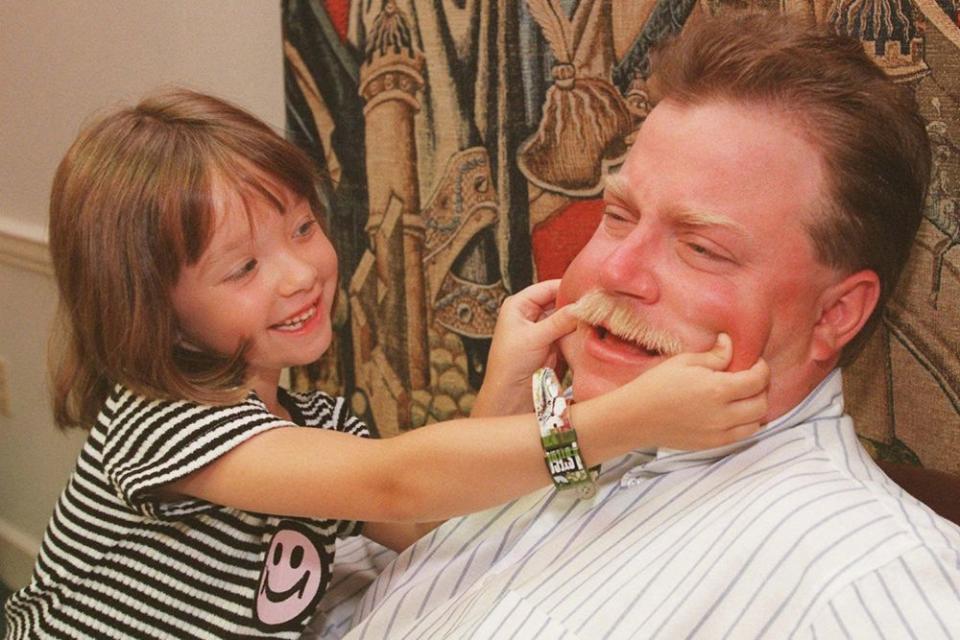
Scruggs, the AJC reporter who first broke the news he was being targeted by the FBI, had died years earlier and just weeks before Jewell’s wedding. She was 42.
Lively, unconventional and relentless about ferreting out news, Scruggs was valued for her reporting skills but occasionally discomfiting to her colleagues, some of whom chafed at her revealing clothing choices and her vulgarity. A character, they called her. A firecracker.
Before her death, Scruggs had long struggled with back pain, and her health was further complicated by her smoking and heavy drinking as well as the medication she took.
Alexander says that after authorities cleared Jewell, “she was the first person to move on and continue trying to find the bomber. … She covered a lot of other stories, but this was her cross to bear.”
“She was never at peace or at rest with this story,” a friend told the AJC. “It haunted her until her last breath. It crushed her like a junebug on the sidewalk.”
Rankin, who still works at the paper, remembers being on the police beat with Scruggs: “She would be talking on the phone trying to get these detectives to tell her what to say, to give her information and so she could break the story. And they would always say, ‘No, no,’ and she would be saying, ‘No, you’re not going to tell me no. You’re going to tell me, I need to know. You’ve got to let me know.’ “
The AJC has never confirmed Scruggs’ original source, though The Suspect reports it was FBI agent Johnson, who died in 2003 at 57 years old.
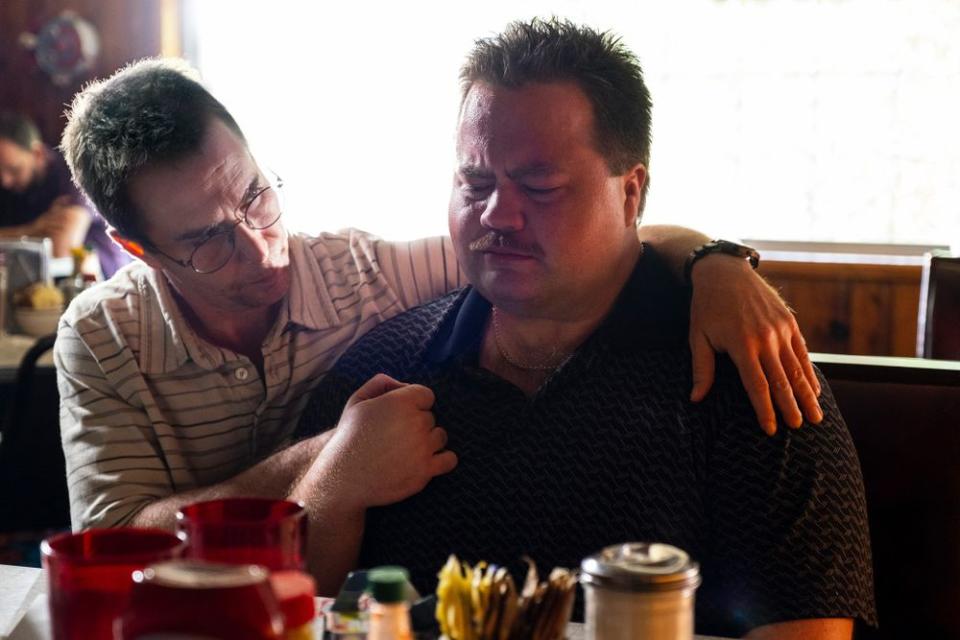

Long after Jewell was finished with the FBI, he remained entangled with the Atlanta paper. His team sued various media outlets over the reporting about the case. Only the AJC refused to settle, insisting it had not libeled Jewell by accurately reporting the status of the FBI’s investigation, among other information.
More than a decade later, the court agreed.
With the release of Eastwood’s movie, the relationship has reversed: The AJC has strongly objected to how the movie depicts its work and Scruggs herself. She is played (by name) by Olivia Wilde and shown using her sexuality to get the tip about Jewell from an FBI agent played by Jon Hamm.
“For a film that purports to be about the besmirching of someone’s reputation to proceed to smear Ms. Scruggs and the paper she reported for in this manner is highly offensive,” Hollywood attorney Martin Singer, whom the AJC hired, said in a letter to Eastwood and Warner Bros.

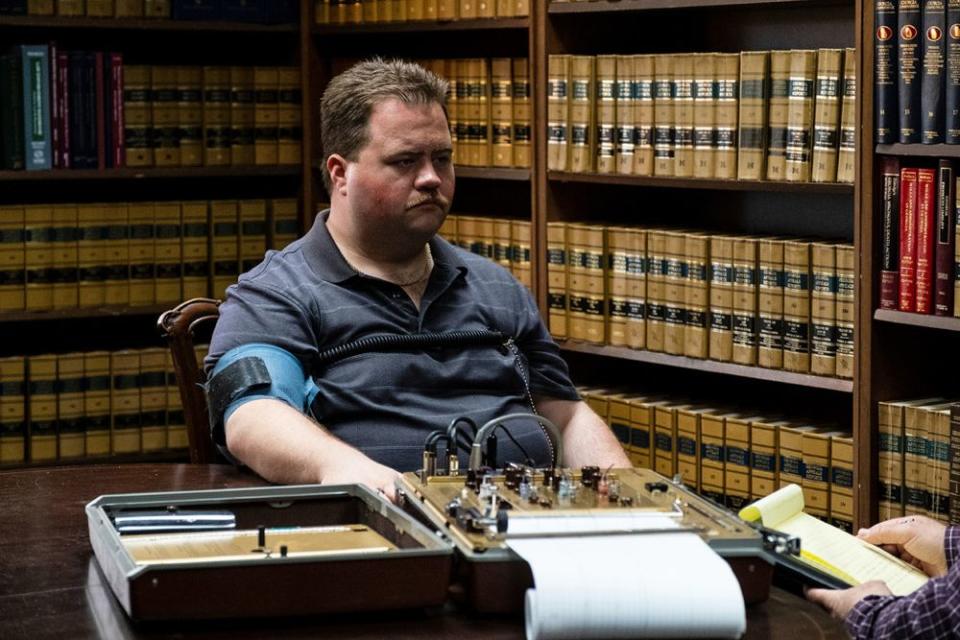


The AJC‘s editor, Kevin Riley, tells PEOPLE there’s “some tremendous irony” in the film deviating from the already twisting turns of real life — while it criticizes the news media for, in Eastwood’s view, doing the same.
“In this day and age all journalists should be concerned about people understanding how we do our work, how important our work is, how hard people work to get things right,” Riley says. “There’s no evidence that’s how she [Scruggs] got the story — there’s only evidence she got the story by working extremely hard to get it through years of work and developing sources, and she gets the biggest story in the world at the time. She gets it and she gets it right.”
In its own statement, Warner Bros. said, in part: “‘Richard Jewell’ focuses on the real victim, seeks to tell his story, confirm his innocence and restore his name. The AJC’s claims are baseless and we will vigorously defend against them.”
Even now, so much of the story of Richard Jewell is about what kinds of stories people tell about him.
“Richard was a wonderful man. He was sweet, he was tenderhearted, he was very giving,” Dana told Fox News. (Jewell’s mom, Bobi, continues to speak out on his behalf as well.)
Dana said she liked Eastwood’s film, which she watched with friends and family. She said it made her think of her husband.
“We laughed and we cried,” she said. “We cried a lot.”
• With reporting by SEAN NEUMANN

